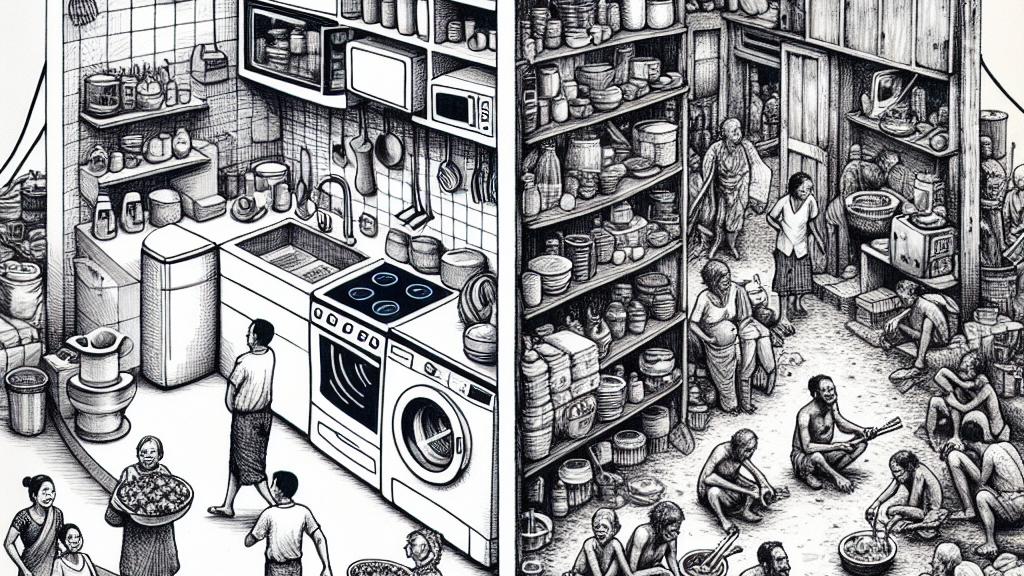Understanding the Role of Household Appliances in Development
Overview
- Household appliances are essential indicators of a nation's material wealth, reflecting overall development.
- The 'domestic transition' plays a crucial role in empowering women by lightening their workloads.
- Urban areas typically experience a faster transition, demonstrating significant disparities compared to rural regions.

The Significance of Household Appliances in Development
Recent research from Radboud University makes it clear that household items, such as refrigerators, washing machines, and microwaves, serve as critical markers of a country's advancement. Imagine a bustling kitchen equipped with modern appliances versus a space where food must be cooked over an open fire. The contrast is stark! In wealthier nations, these appliances symbolize comfort and efficiency, while in lower-income regions, their absence underscores a struggle for basic needs. For instance, while households in urban South Africa might showcase shiny appliances, many in rural areas still contend with food scarcity and simple living conditions. Thus, embracing the concept of 'domestic transition' helps paint a fuller picture of economic development and progress.
Empowering Women Through Appliance Ownership
The ownership of household appliances significantly transforms lives, especially for women. For example, owning a refrigerator allows women to preserve food, reducing the time spent on daily shopping trips and elaborate meal preparations. Picture a mother now able to utilize saved time for her education or a new job instead of labor-intensive chores. This shift not only improves family dynamics but also enhances women's roles in society. As researchers Schilpzand and Smits note, easing the burdens of domestic tasks empowers women to become active contributors within their communities. Thus, the implications of the 'domestic transition' extend far beyond household comfort; they pave the way for social change and empowerment.
The Urban-Rural Divide in the Domestic Transition
The speed at which households adopt appliances varies dramatically between urban and rural locales, emphasizing stark inequalities. In urban settings, economic growth and educational opportunities pave the way for rapid progression in appliance ownership. For instance, consider urban Mexico, where families are quick to embrace modern conveniences, enhancing their quality of life. In contrast, in rural areas of Africa, the immediate needs for food and shelter often take precedence over acquiring appliances. Here, even basic necessities can be a luxury. This gap illustrates the challenges families face in moving toward a more comfortable lifestyle. To bridge this urban-rural divide, it's essential to implement targeted policies that prioritize addressing basic needs, ensuring that every household can participate in the hopeful 'domestic transition.'

Loading...